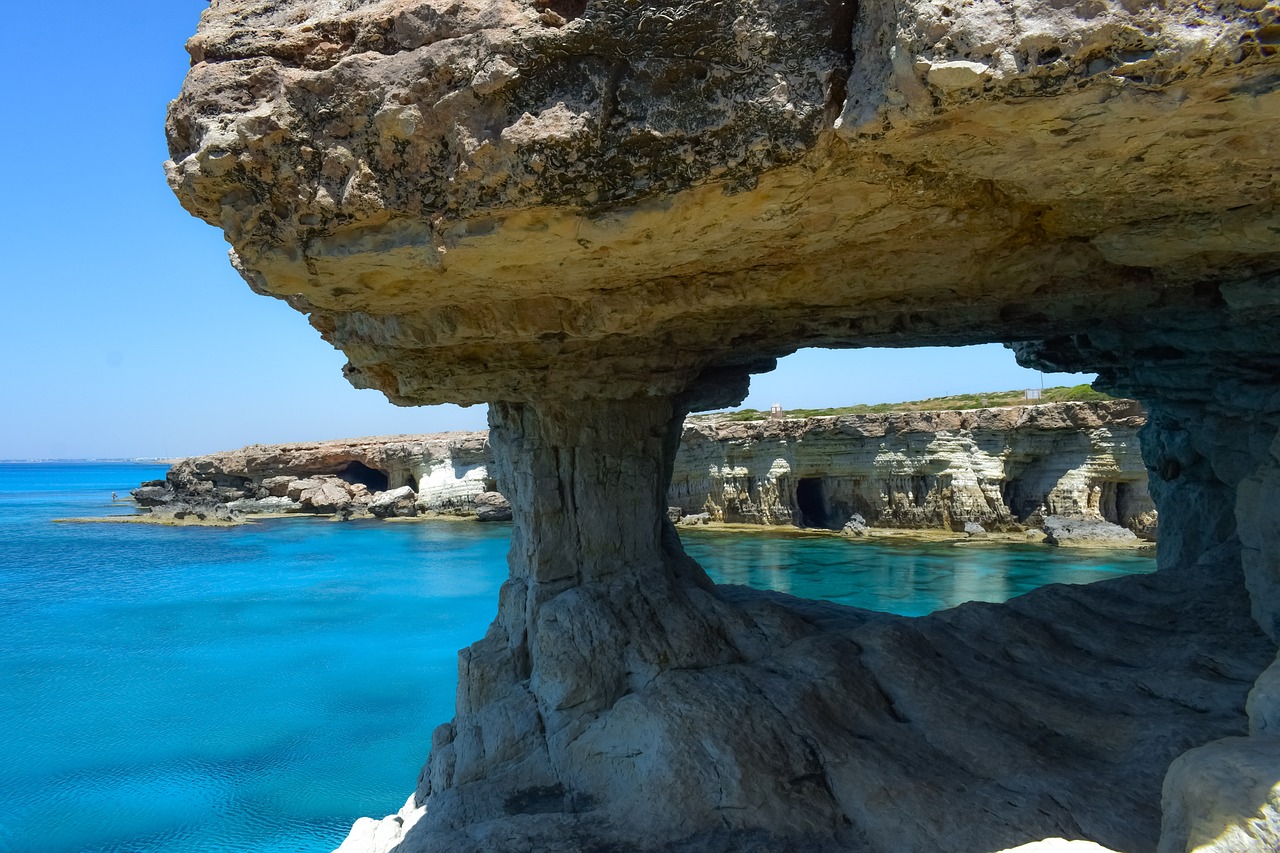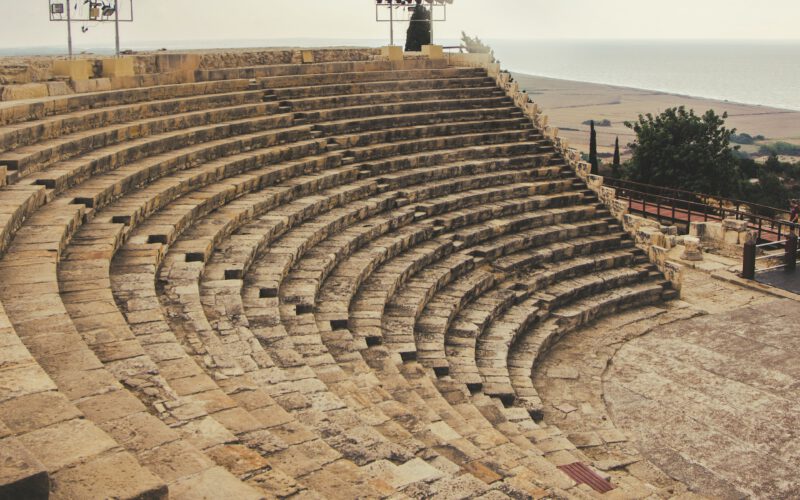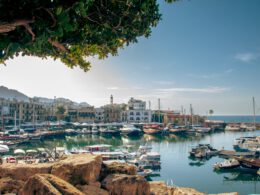As soon as you start thinking about Cyprus, the question arises as to what’s the deal with the Greeks and Turks, the border in the middle of the country and the strained relations. It’s impossible to talk about the situation in Cyprus without a bit of history. So let’s see how it started and where it has led.
The first human settlements were established in Cyprus as early as the Neolithic, but we won’t go that far back in time. Let it suffice for us to know that from really ancient times the people living on the island here were mainly engaged in agriculture and copper mining. They maintained trade and political contacts with other communities in the Mediterranean. Over time, merchants, craftsmen and people fleeing wars from afar began to settle here. Greeks and Phoenicians appeared. Political dominance changed, Cyprus experienced Assyrian, Egyptian, Persian, Greek, Roman, Byzantine and Arab rule. The island’s strategic location tempted many, so the history of Cyprus was very dynamic from the beginning. We haven’t yet reached the Middle Ages, and we already have quite a collection of visitors.
Changing turns of fate
Time for an almost romantic episode with powerful political consequences. In 119, during a storm, a ship carrying Berengaria of Navarre, Richard the Lionheart’s fiancée, came to the island’s shores. While she herself did not arouse the interest of the local ruler, the valuables traveling with her did. Richard the Lionheart forcibly recovered his fiancée and the gold, and in the process captured the island. It was in Cyprus that he married Berengaria. And here ends the romantic part of the story. Richard did not need an island or a wife for happiness. He sold Cyprus to the Knights Templar, and with the money he gained he set out on a crusade. Alone. Berengaria lived away from Richard until her husband’s death 8 years later, and it is said that the marriage was not even consummated.
However, let’s return to Cyprus. The Templars didn’t like the island much either, so they sold it to Guido of Lusignan, which began the 300-year domination of the Lusignan family. The time since Richard the Lionheart’s arrival has seen the rise of Catholicism and worsening conflict between the Roman Catholic and Orthodox churches. It is also, unfortunately, a time when the local population lost all independence, social differences deepened, violence and exploitation emerged.
The Genoese and Venetians also left their mark on the island, draining Cyprus of its natural riches and increasing profits from trade.
Toward the East and West
In 1570, an Ottoman fleet arrived on the shores of Cyprus. However, this was not a good-neighborly visit; the Turks came to take over the island. Defense proved ineffective, the aggressors took over one city after another. Thus, for three centuries Cyprus became a province of the Ottoman Empire. The island’s laws were intended to protect the Muslim and Christian populations from conflict and oppression by those in power. Unfortunately, neither the corrupt and greedy Turkish administration nor the growing Orthodox Church was concerned about social justice and the peaceful coexistence of different peoples. It was during this time that divisions began to emerge, the consequences of which Cypriots still feel today.
When Britain took over the island in 1878, hopes for improvement were high. The British did indeed start by reforming the administration, schools and hospitals were established, laws changed, trade cooperation with Europe was strengthened. Unfortunately, further investments were abandoned rather quickly, Britain took advantage of Cyprus’ strategic location, but was not involved in modernizing the island. In 1925, Cyprus officially became a colony of the Crown. After World War II, conflicts on the island intensified, Cypriot Greeks began to fight to join mainland Greece, which for obvious reasons did not please the Turkish Cypriots. The situation escalated, the British were unable to prevent the fighting, which threatened the post-war agreements, including the forming NATO. In this situation, it was decided to create an independent state, and the British presence on the island was limited to two military bases.
Republic of Cyprus
The independent state of Cyprus was officially established in 1960.The rules of its functioning were described in detail in the constitution, it took care of the rights of both peoples, the division of positions (for example, a Greek president and a Turkish vice-president) and spheres of influence were precisely written out. The system was complicated and from the beginning did not please politicians, who always represented the interests of only one of the parties. The calm lasted only three years, after which the Greeks, led by President Makarios, began to question the existing order. They believed that the existing system favored the Turks, who were a minority. Disputes flared up anew. Riots and bloodshed ensued.
The fragile agreement to build a free state proved insufficient. On the one hand, demands for the annexation of Cyprus to Greece intensified, while on the other there was increasing talk of splitting the country into two independent parts. Eventually, in 1974, a split occurred. Turkey, responding to Greek aggression, occupied a third of the island. Thousands of people had to abandon their homes and settle in another part of the island – Greeks in the south, Turks in the north. In 1983, the Turks announced the establishment of the Turkish Republic of Northern Cyprus in the occupied areas. To increase the size of the Turkish community, settlers from Turkey began to be brought to Cyprus. Neither the Greek Cypriots nor the Turkish Cypriots liked this.
Today the situation is still far from normalized, but the two communities have learned to live side by side and the conflict is not reaching life-threatening proportions. In 2004, the Republic of Cyprus joined the European Union, and four years later it joined the Eurozone. From time to time, talks are held at the highest level to see if any step could be taken toward a solution to the conflict, but so far no way out of this intractable situation has been found. For the time being, life in Cyprus is flowing in the shadow of division, although both sides are trying not to escalate the conflict.










